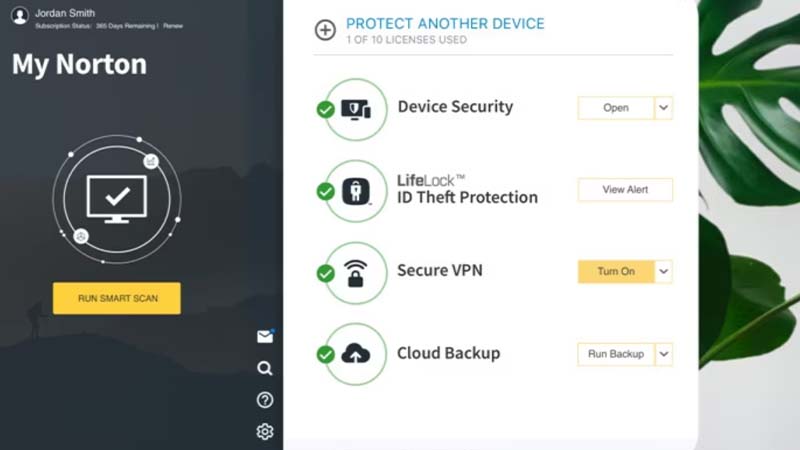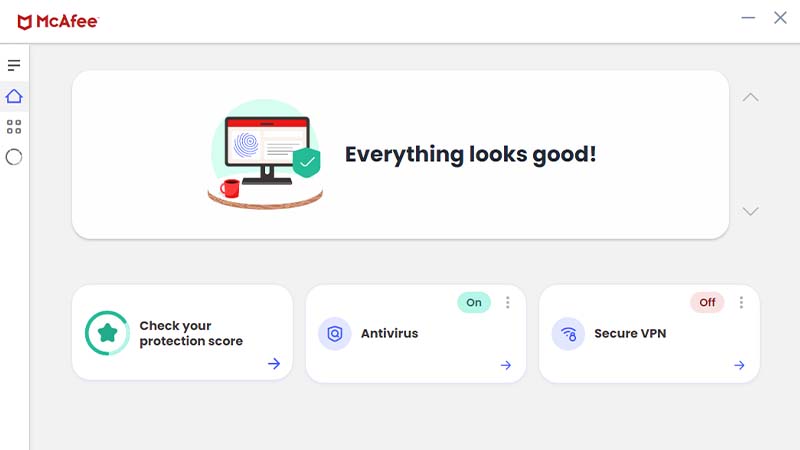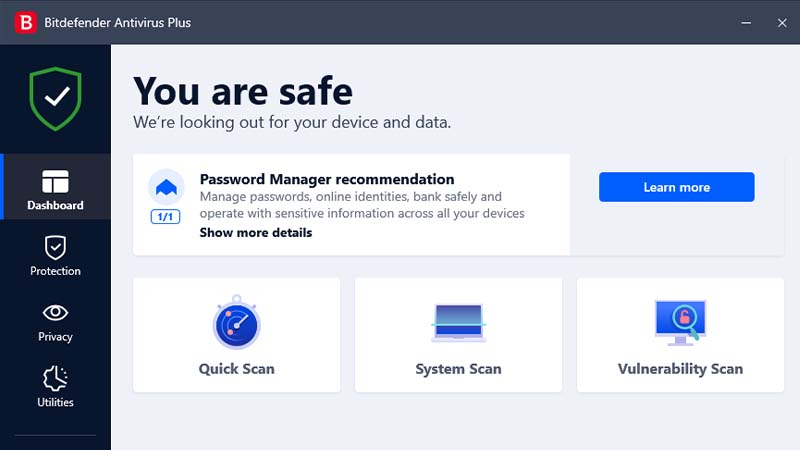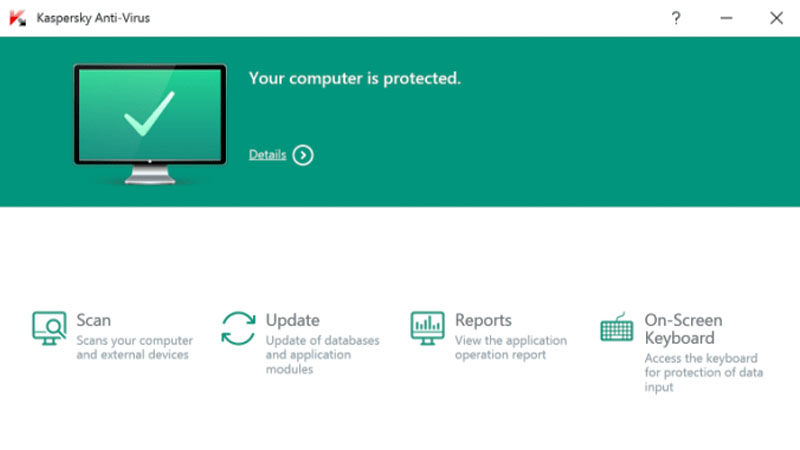Antivirus software is a type of program designed to protect your computer from malicious software, commonly known as malware. It is important because malware can cause significant damage to your computer, such as stealing your personal information, encrypting your files, and even damaging your hardware.
Table of Contents
Similar to premium VPNs which protect your online activity an Antivirus software works by scanning your computer for known malware and then removing it. It can also detect and block new threats that have not yet been identified. By having antivirus software installed on your computer, you can significantly reduce the risk of a malware infection and keep your computer and personal information safe.
What are the Best Antivirus programs?
There are many antivirus programs available in the market, each with its own strengths and weaknesses. Here are some of the top antivirus programs and a brief overview of their features:
1. Norton Antivirus


Norton is one of the most popular antivirus programs in the market. It offers excellent protection against malware, viruses, and other threats. Norton also includes a firewall, identity theft protection, and a secure VPN.
Norton Antivirus offers real-time protection against a wide range of online threats and uses advanced technologies to detect and remove viruses and other malicious software from your computer. It is known for its user-friendly interface, fast scanning speeds, and minimal impact on system performance.
Norton Antivirus is available for both Windows and Mac operating systems and offers a range of features, including anti-malware protection, anti-phishing, anti-spam, and anti-spyware protection. Additionally, it offers a variety of security tools, such as a password manager, firewall, and parental controls. Norton Antivirus is a comprehensive antivirus solution that provides strong protection against various online threats and is a popular choice among computer users.
2. McAfee Antivirus


McAfee is another popular antivirus program that offers excellent protection against malware and other threats. It also includes a firewall, identity theft protection, and a secure VPN. One of the notable features of McAfee is its multi-device protection, which allows you to protect all your devices with a single subscription.
It also includes a password manager and a firewall to provide additional security layers. McAfee is a solid antivirus option that provides comprehensive protection against malware and online threats. Its multi-device protection and additional security features make it a popular choice among users. However, its resource usage and occasional false positives may be a concern for some users.
3. Bitdefender Antivirus


Bitdefender is known for its excellent malware protection and low system impact. It includes a range of features such as anti-phishing protection, ransomware protection, and a secure browser. The software is user-friendly and easy to install, making it a popular choice for individuals and businesses alike.
Bitdefender offers different versions of its software, including Bitdefender Antivirus Plus, Bitdefender Internet Security, and Bitdefender Total Security. Each version offers different features and levels of protection, allowing users to choose the one that best meets their needs. Overall, Bitdefender is a reliable antivirus program that provides strong protection against a wide range of online threats.
4. Kaspersky Antivirus


Kaspersky offers excellent malware protection and includes a range of features such as anti-phishing protection, ransomware protection, and a secure browser. It also includes a firewall and a virtual keyboard for secure online transactions.
Kaspersky Antivirus is compatible with multiple platforms, including Windows, macOS, and Android. It also has versions for businesses, offering a range of additional features and tools for network security and data protection. Kaspersky has been recognized by independent testing labs for its high level of protection and low false-positive rates. It has also won several awards for its reliability and usability.
Kaspersky has been embroiled in controversy due to allegations of ties to the Russian government, which has raised concerns about potential backdoor access to user data. Despite this, Kaspersky continues to be a popular choice for users seeking strong antivirus protection.
5. Avast Antivirus


Avast is a free antivirus program that offers excellent malware protection. It includes a range of features such as anti-phishing protection, a sandbox for running suspicious programs, and a password manager. One of the key features of Avast Antivirus is its real-time protection, which monitors your computer in real-time to detect and block any potential threats.
It also offers email protection, which scans incoming and outgoing emails for potential malware or phishing scams. Avast’s firewall adds an extra layer of protection, controlling which applications can access the internet and blocking potentially malicious traffic.
It’s important to note that no antivirus program can provide 100% protection against all threats. It’s important to keep your antivirus program up-to-date and to practice safe browsing habits to minimize the risk of malware infections.
Why you need an Antivirus?
Well, who doesn’t love a good discount, right? But when it comes to antivirus software, it’s not just about getting a good deal, it’s about protecting your computer from harmful viruses and malware. An antivirus program is designed to detect and remove malicious software that can harm your computer and steal your personal information. And let’s face it, with the rise of cybercrime and the increasing number of threats out there, having a reliable antivirus software is more important than ever.
Now, getting a discount on an antivirus program is just an added bonus. It means you can get the protection you need at a more affordable price. So, if you’re on a tight budget but still want to ensure the safety of your computer and personal data, taking advantage of discounts on antivirus programs is definitely a smart move.
You may also like
FAQ’s
Here are some FAQs about Antivirus and their answers:
What is an antivirus software, and how does it work?
An antivirus software is a program designed to detect, prevent, and remove malware from a computer or other electronic devices. It works by scanning files and programs on the computer, looking for patterns or behaviors that match those of known viruses, worms, and other malicious software. Once it identifies a threat, the antivirus software either removes it or quarantines it to prevent it from causing harm.
Is it necessary to have an antivirus program installed on my computer?
Yes, it is highly recommended to have an antivirus program installed on your computer. Without an antivirus, your computer is at a higher risk of being infected by viruses, malware, and other malicious software that can compromise your personal and financial information, damage your files and data, and even take over your system.
Can an antivirus program detect and remove all types of malware?
While antivirus programs can detect and remove many types of malware, they cannot catch all of them. New malware strains are constantly being developed, and some can evade detection by traditional antivirus programs. This is why it is important to keep your antivirus software up-to-date and to practice safe browsing and downloading habits.
Can antivirus software slow down my computer?
It is possible for some antivirus programs to slow down your computer, especially if they are running a system scan or updating in the background. However, many modern antivirus programs are designed to be lightweight and run without slowing down your system. If you notice a significant slowdown, it may be worth considering a different antivirus program or adjusting the settings of your current one.
Do I need to pay for antivirus software, or are free programs just as good?
While there are many free antivirus programs available, paid programs often offer additional features and more comprehensive protection. Paid programs may also offer customer support and other benefits that are not available with free programs. Ultimately, the level of protection you need will depend on your usage habits and the sensitivity of the information you are trying to protect.
My Antivirus is slowing down my computer, what can I do?
It is common for Antivirus software to slow down your computer because it is constantly running in the background and scanning for potential threats. However, if it is severely impacting your computer’s performance, there are a few things you can do. Firstly, try adjusting the settings of your Antivirus software to run scans at times when you are not using your computer. You can also try reducing the number of programs that run automatically when you start your computer. Additionally, consider upgrading your hardware such as adding more RAM or upgrading your hard drive to improve your computer’s overall performance.
My Antivirus is not detecting viruses, what should I do?
If your Antivirus is not detecting viruses, there could be a few reasons for this. Firstly, ensure that your Antivirus is up to date and that you have the latest virus definitions installed. If it still isn’t detecting viruses, try running a manual scan of your computer to check for any potential threats. You can also try using a different Antivirus software to see if it detects any viruses that your current one missed.
My Antivirus is blocking a safe website, what should I do?
Sometimes Antivirus software can be overprotective and block websites that are actually safe. If you encounter this issue, you can try adding the website to your Antivirus software’s whitelist or exception list. This will allow your computer to access the website without any interference from the Antivirus software.
My Antivirus subscription has expired, what should I do?
It is important to keep your Antivirus subscription up to date to ensure that your computer is protected from potential threats. If your subscription has expired, you can renew it by purchasing a new license key or subscription. Some Antivirus software also offers free versions that provide basic protection, but it is recommended to have a paid subscription for full protection.
My Antivirus is giving me false positives, what should I do?
False positives occur when your Antivirus software identifies a safe file or program as a potential threat. If you encounter this issue, you can try adding the file or program to your Antivirus software’s whitelist or exception list. You can also report false positives to your Antivirus software’s customer support team to improve their detection algorithms.
If you have a question feel free to ask in the comments.






